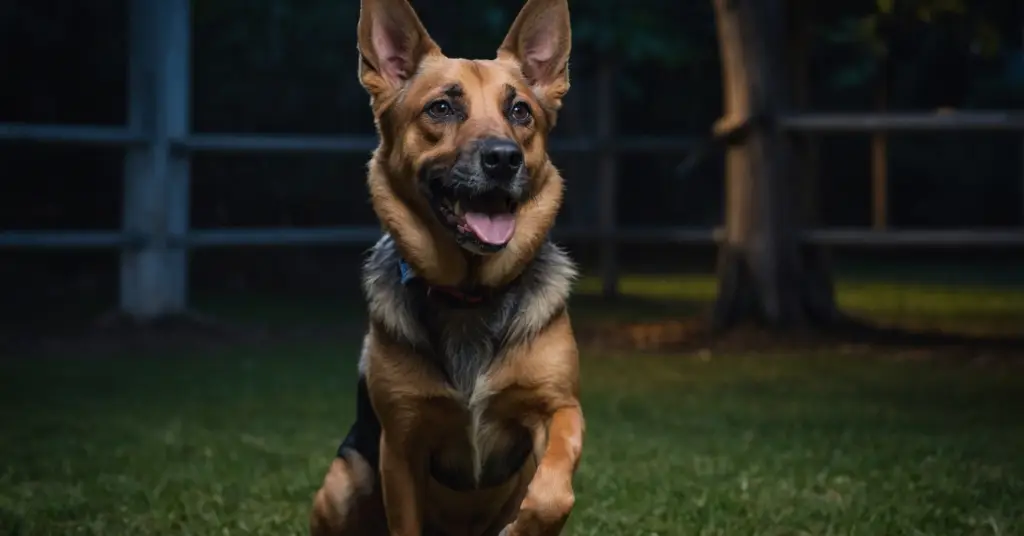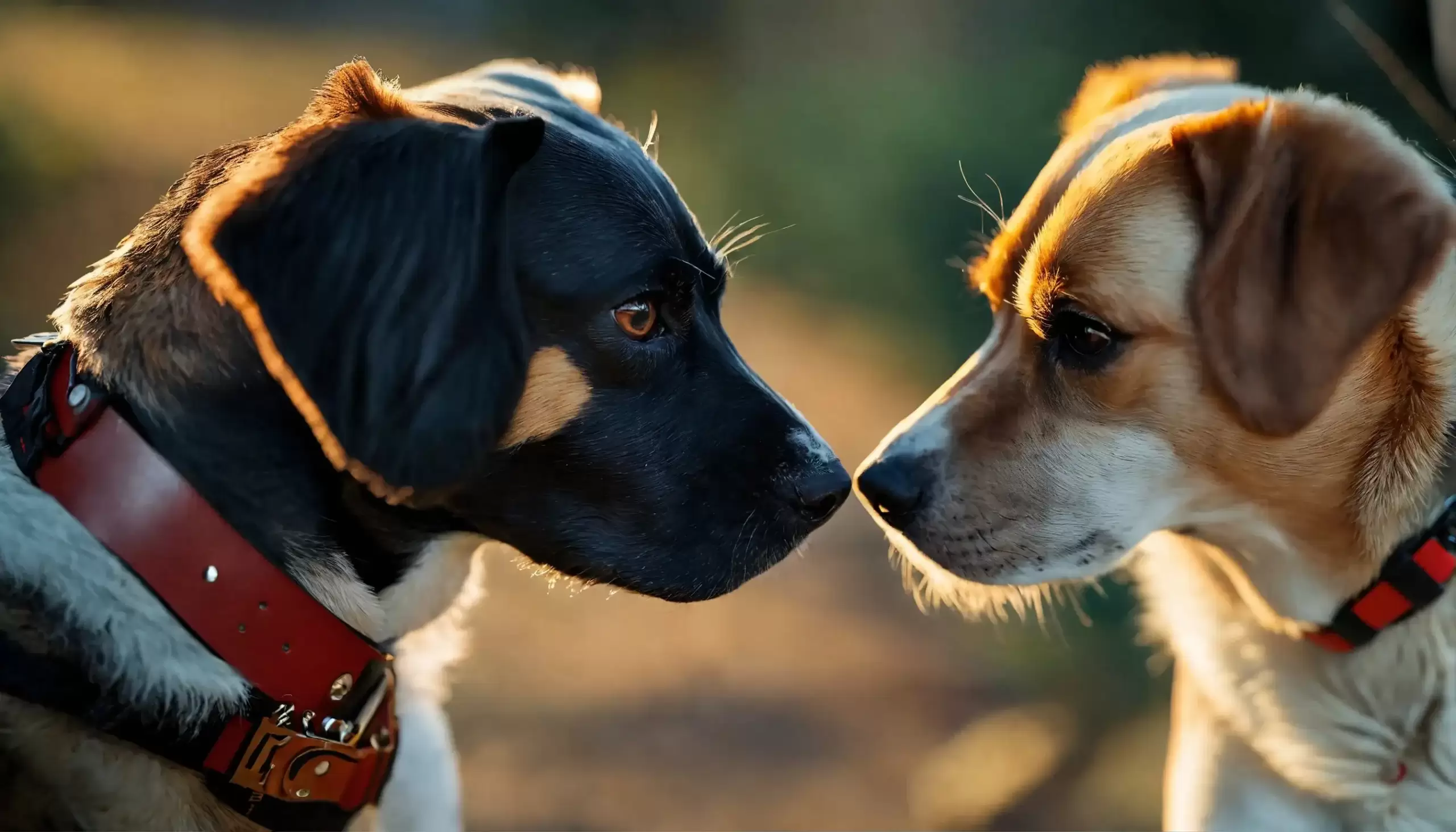Choosing a dog breed is an important and exciting decision. Each breed has unique characteristics that can directly impact your daily life and household dynamics. Therefore, it is essential to consider your lifestyle and the available space before making this choice.
Thinking about the activities you enjoy, the environment you live in, and the time you can dedicate to your dog’s care can help determine which breed best fits your profile. After all, the ideal dog should be one that adapts to your pace and needs.
If you’re still unsure about which breed to choose, keep reading and discover the best options for each lifestyle.
Why Space Matters When Choosing a Dog Breed
The space you live in is one of the most important factors when choosing a dog breed. The dog’s size and the amount of space available for it can greatly influence the animal’s adaptation and the harmony with your family.
If you live in a spacious house with a large yard, a large breed might feel more comfortable. However, if your space is more limited, like in apartments, it’s necessary to choose a breed that can adapt to this more confined environment.
Breeds for Apartments:
- Shih Tzu: Small and calm, Shih Tzus are ideal for those with limited space. They are very affectionate and love to relax next to their owners. Their energy is moderate, and they adapt well to a slower pace, making them great companions for apartment dwellers.
- French Bulldog: Compact and quiet, French Bulldogs are adorable and adjust well to apartment life. They enjoy calm moments and are content with shorter walks, making them ideal for those looking for a pet that doesn’t require much physical activity.
- Pug: Always ready for a short play session and a good dose of affection, Pugs are great for smaller spaces. Despite their energy, they have a small build and adapt well to places with limited space.
- Chihuahua: Despite their small size, Chihuahuas have strong personalities and are very energetic. They are perfect for those who want a small dog with a big presence and attitude.
Remember, even if your dog is from a small breed, it still needs regular exercise to stay healthy. Daily walks are essential for all dogs, regardless of size.
Choosing a Dog Breed for Adventure Lovers

If you love running, hiking, or exploring nature, choosing a dog breed with enough energy to keep up with your pace is crucial. Some breeds are more active, while others prefer quiet moments with their owners. For those seeking an adventure companion, there are plenty of options!
Active Breeds for Adventurers:
- Border Collie: Known for its intelligence and energy, the Border Collie is perfect for those who engage in canine sports or love spending the day hiking. They enjoy both physical and mental challenges, making them great companions for outdoor activities.
- Labrador Retriever: Labradors are athletic, energetic, and love to swim. They are ideal for those with an active lifestyle who enjoy practicing sports with their dog, like running or swimming.
- Australian Shepherd: Besides their endurance, the Australian Shepherd is agile and very energetic. These dogs love being outdoors and need regular exercise to stay happy. They are perfect for those who love to explore the world with their four-legged friend.
- Jack Russell Terrier: Despite their small size, Jack Russells are energetic. These dogs are ideal for those seeking a compact dog with a lot of enthusiasm for outdoor adventures.
Keep in mind that active dogs require time and dedication to stay stimulated. It’s not enough to have a large yard; it’s necessary to ensure the dog has physical and mental activities to stay balanced and happy.
Adopting a Mixed Breed Dog: Love Without Pedigree
Mixed-breed dogs, also known as mutts, are one of the best choices when choosing a dog breed. Many people are attracted to the idea of having a purebred dog, but mixed-breeds have a lot to offer, including a unique personality, greater resistance to genetic diseases, and unconditional loyalty.
Advantages of Adopting a Mixed-Breed Dog:
- Genetic diversity: Mixed-breeds are generally healthier because they have diverse genetics. This can mean a lower risk of hereditary diseases that are common in purebred dogs.
- Unique and special: By adopting a mixed-breed dog, you’re choosing a pet with unique characteristics and appearance. No two mixed-breeds are alike, and this only strengthens the bond between you and your new friend.
- Emotional connection: Rescued dogs often have immense gratitude for being adopted. They form strong, true bonds with their owners, offering friendship filled with love and companionship.
How to Find the Ideal Mixed-Breed Dog:
- Visit shelters and NGOs to meet the available dogs.
- Ask about the dog’s history and temperament.
- Remember, every mixed-breed dog is unique – that’s part of the magic of adopting them!
Adopting a mixed-breed dog is not just about gaining a loyal friend, but also about saving a life. They offer unconditional love and become special companions for the whole family.
Perfect Dogs for Families with Children

Families with children should choose breeds that are patient, playful, and reliable. Kids have a lot of energy and can be a bit clumsy, so it’s essential to choose a breed that is friendly and able to handle the little ones.
Recommended Breeds for Families:
- Golden Retriever: Known for their gentleness and patience, Golden Retrievers are perfect for families with children. They love to play and are great with young kids.
- Beagle: Small but full of energy, Beagles are wonderful companions for children’s playtime. Their friendly and playful nature makes them a popular choice for active families.
- Collie: Known for being protective and loyal, the Collie is a great dog for families with young children. They are calm, attentive, and enjoy looking after their family members.
- Labrador Retriever: Another great favorite for families, Labradors are friendly, easy to train, and love the company of children. They are adaptable and do well in any family environment.
Tips for a Harmonious Relationship:
It’s important to teach children to respect the dog’s space, avoiding actions like pulling on ears or tails. Additionally, it’s essential to supervise interactions between the dog and children, especially during the first encounters, to ensure everyone’s safety.
Dogs for People with Allergies
Many people believe that owning a dog is impossible if they suffer from allergies. However, there are hypoallergenic breeds that produce less hair and allergens. When choosing a dog breed, consider options that are less likely to trigger allergic reactions.
Best Hypoallergenic Breeds:
- Poodle: Available in three sizes (toy, miniature, and standard), the Poodle has a coat that hardly sheds, making it ideal for people with allergies.
- Bichon Frisé: Small and fluffy, the Bichon Frisé is a dog with hair that doesn’t shed much, which helps reduce the amount of allergens in the house.
- Portuguese Water Dog: With a dense and wavy coat, these dogs are active and excellent for families who love water. They are also a good option for those with allergies.
- Maltese: Elegant and low-maintenance, the Maltese is a great option for those seeking a small, hypoallergenic dog.
Additional Care:
Even with hypoallergenic breeds, it’s important to brush the dog’s coat regularly and keep the house clean. This helps reduce the buildup of hair and allergens, creating a healthier environment for everyone.
How to Choose the Ideal Dog Breed
Choosing a dog breed is an act of love but also requires planning. Before making a decision, it’s important to do a self-assessment. Ask yourself: What is my energy level? How much time can I dedicate to my new friend? Does my home have enough space for the dog I want?
The perfect dog is not necessarily the most beautiful or popular one, but the one that best fits your lifestyle and the love you can provide.
Remember: when choosing a dog breed, you are forming a bond of friendship that will last for many years. That’s why it’s essential to make a conscious and thoughtful choice.

